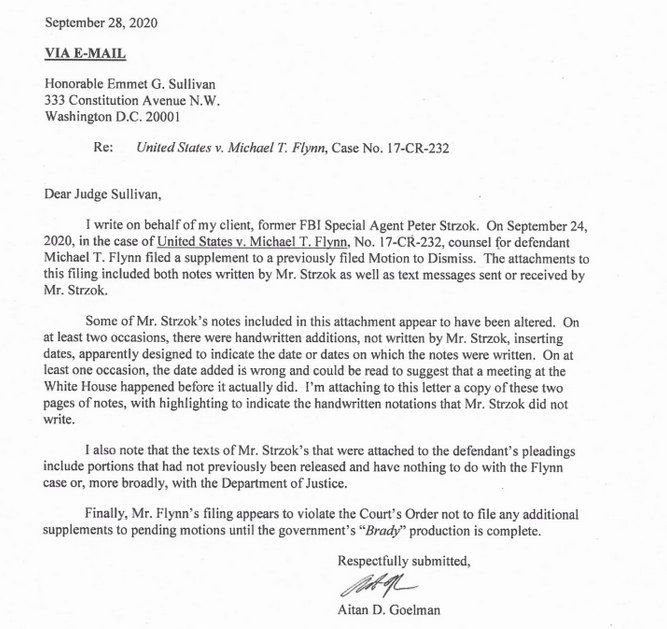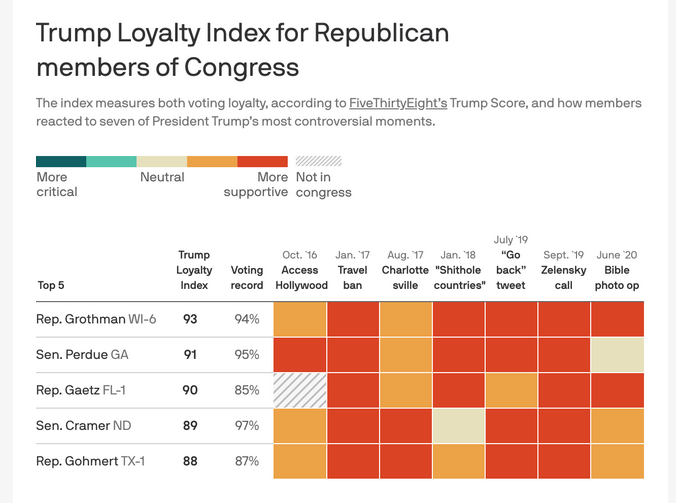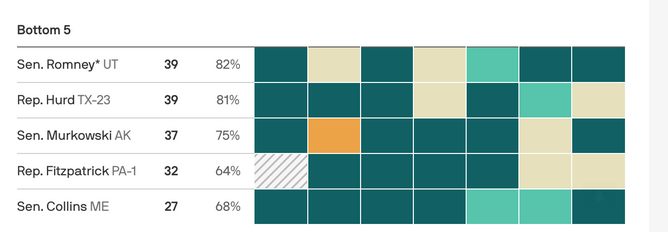Campaigning four years ago as a Washington outsider, Donald J. Trump electrified rallies with his vows to “drain the swamp.” But once he was in the White House, President Trump didn’t merely fail to end Washington’s insider culture of lobbying and favor-seeking. He reinvented it, turning his own hotels and resorts into the Beltway’s new back rooms, where public and private business mix and special interests reign.
Federal tax-return data for Mr. Trump and his business empire obtained by The New York Times shows that even as he leveraged his image as a successful businessman to win the presidency, large swaths of his real estate holdings were under financial stress, having racked up losses over the preceding decades.
After the election, his family business discovered a lucrative new revenue stream: people who wanted something from the president.
An investigation by The Times has found over 200 companies, special-interest groups and foreign governments that patronized Mr. Trump’s properties while reaping benefits from him and his administration. Nearly a quarter of those patrons have not been previously reported.
Here are some key findings from the investigation.
The president’s family business earned millions from customers with interests before his administration
Just 60 customers with interests at stake before the administration brought the Trump Organization nearly $12 million during the first two years of Mr. Trump’s presidency, The Times found. Almost all saw their interests advanced, in some fashion, by the president or his government.
Interviews with nearly 250 business executives, club members, lobbyists, Trump property employees and current or former administration officials provided a comprehensive account of how well customers fared with the administration — and how the president profited.
Many said in interviews that any favorable outcome was incidental to their patronage. But whether these customers won or lost, Mr. Trump benefited. They paid his family business for golf outings and steak dinners, for huge corporate retreats and black-tie galas.
During Mr. Trump’s campaign and the months leading up to his inauguration, the in-house magazine at his Mar-a-Lago club in Florida announced nearly 100 new members, a number of whom had significant business interests in Washington. The tax records show that in 2016 alone, the club’s initiation fees delivered close to $6 million in revenue.
The president kept an eye on the Trump Organization from Washington
As president-elect, Mr. Trump had pledged to step back from the Trump Organization and recuse himself from his private company’s operation. As president, he kept watch on properties run by the company, which is now led by his sons Eric and Donald Jr.
When Mr. Trump stopped by the Trump International Hotel in Washington, he sometimes let managers know he was being briefed on their performance. At Mar-a-Lago, he told longtime members that he ought to raise prices on the new crowd angling to join. Then he did, at least twice.
Eric Trump sometimes told his father about specific groups that had booked events at Mar-a-Lago, a former administration official said. And as Mr. Trump surveyed his business empire from the White House, he occasionally familiarized himself with details from club membership lists, according to two people with knowledge of the activity.
Getting access to Mr. Trump was easy: He has spent time at his hotels and resorts on roughly one day out of every four of his presidency
When the president walked into his Washington hotel for dinner, word seemed to spread almost instantaneously. People might camp out at the hotel bar for hours, hoping for even a brief audience. At Mar-a-Lago, members paid Mr. Trump to spend time at what was, ultimately, his home. During meals, people would line up at his table. Guests, even paying members, had a habit of thanking Mr. Trump for having them over.
“People know and expect him to be at Mar-a-Lago, so they’ll bring a guest or come with a specific idea,” said Fernando Cutz, a former national security aide who often visited the club with Mr. Trump. “With that access, you could pitch your ideas. With this president, he’d actually listen and direct his staff to follow up.”
And chances were good he’d be around. Mr. Trump has visited the Trump family’s hotels and resorts on nearly 400 days of his presidency.
Victories were as weighty as a presidential directive and as ephemeral as a presidential tweet
Patrons at the properties ranged widely: foreign politicians and Florida sugar barons, a Chinese billionaire and a Serbian prince, clean-energy enthusiasts and their adversaries in the petroleum industry, avowed small-government activists and contractors seeking billions from ever-fattening federal budgets.
Mr. Trump’s administration delivered them funding and laws and land. He handed them ambassadorships, appointments, presidential directives and tweets.
More than 70 advocacy groups, businesses and foreign governments threw events at the properties that had previously been held elsewhere, or created new events that drove dollars into the Mr. Trump’s business.
Donors also paid for the privilege of giving money to his campaign and super PAC. Mr. Trump attended 34 fund-raisers held at his hotels and resorts, events that brought them another $3 million in revenue. Sometimes, he lined up his donors to ask what they needed from the government.
Some customers framed their patronage in religious terms
Almost from the outset of the Trump presidency, his Washington hotel was a hub of religious gatherings, fund-raisers and tours — events that converted Mr. Trump’s most loyal voters into some of his most reliable customers.
Prominent evangelical ministers were given V.I.P. status at the hotel, according to former employees, with their names and pictures distributed to the staff alongside those of senior Republican lawmakers and Fox television luminaries. And they spent big.
Unlike businesses and trade groups, many religious conservatives explicitly linked their support of Mr. Trump’s business to his administration’s socially conservative agenda. Some explained in interviews how Mr. Trump had delivered so much for evangelicals — on abortion, judges, Israel and more — that they wanted to show their gratitude.
“If we can support this president by having dinner or staying at the hotel, then we want to do that,” said Sharon Bolan, an evangelist from Dallas who belongs to Mr. Trump’s national faith leaders group.
Even politicians from small countries rubbed shoulders with the leader of the free world
The Times identified more than 20 foreign officials, politicians and businesses or groups closely affiliated with governments abroad that held events at Mr. Trump’s properties or paid for rooms there.
For foreign politicians on the lower rungs of Washington’s diplomatic ladder, even a chance meeting with the American president can be a significant propaganda victory. At a gala held by local Republicans last spring at Mar-a-Lago, the head of Romania’s sixth-largest political party shook hands with Mr. Trump. And some embassies moved their annual galas or independence commemorations to the Washington hotel.
When the prime minister of the Serbian enclave in Bosnia, Zeljka Cvijanovic, stopped at the hotel and met Kellyanne Conway and Sarah Huckabee Sanders, she issued a news release almost suggestive of a state function. “On the first day of her visit to Washington, Prime Minister Cvijanovic met with the closest associates of the US President,” it proclaimed.
Selfies and social media posts chronicled the favor-seeking
Many of those seeking help from his administration were not shy about advertising their access to the president’s realm. The Times’s investigation includes a review of hundreds of social media posts, many by patrons enthusiastically documenting their visits to Mr. Trump’s properties, as well as an array of published news articles where some patrons spoke candidly about their access.
“Once he became president, everyone wanted to be around him,” said Jeff Greene, a Florida real estate developer and Mar-a-Lago member. It wasn’t influence-peddling, Mr. Greene said. “People like to be where presidents are.”
The Trump Organization did not respond to repeated requests for comment over the past week, nor did it respond to a detailed description of facts included in the article.
A White House spokesman, Judd Deere, issued a brief statement saying that Mr. Trump had “turned over the day-to-day responsibilities of the very successful business he built” to his two adult sons. “The president has kept his promise every day to the American people to fight for them, drain the swamp and always put America first,” he added.




